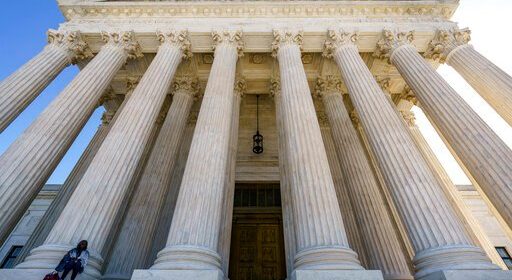Supreme Court Orders Dismissal Of Donald Trump Twitter Case

The Supreme Court directed a lower court to toss out a lawsuit over whether Donald Trump violated the First Amendment when he blocked followers from his then-active Twitter account.
Lower court rulings had found that such actions violated the First Amendment, but the justices found the case moot, as Trump is no longer president and no longer a public official. The ordered the previous judgements vacated.
Jameel Jaffer, executive director of the Knight First Amendment Institute, which brought the case, said in a statement, “While we would have liked the Supreme Court to leave the Second Circuit’s ruling on the books, we’re gratified that the appeals court’s reasoning has already been adopted by other courts, and we’re confident it will continue to shape the way that public officials use social media.”
A district court ruled in 2018 that Trump’s Twitter account was a “public forum” and that his blocking of followers violated the First Amendment as it was based on opinion and viewpoint. An appellate court upheld the ruling in July, 2019, and the Trump administration appealed to the Supreme Court. On the day before the inauguration, they asked the justices to dismiss the case as moot and vacate the ruling.
Although that happened, the Fourth Circuit Court of Appeals ruled in another case in 2019 that a public official in Loudon County, VA could not block a user from her Facebook page because her account was a “public forum” under the First Amendment.
Another factor that made the Trump case moot: His Twitter account was suspended in the aftermath of the Capitol siege, something that Justice Clarence Thomas noted in a concurring opinion. He weighed in on the power that big tech has over speech, although that was not the nature of this case.
“The Second Circuit feared that then-President Trump cut off speech by using the features that Twitter made available to him,” Thomas wrote. “But if the aim is to ensure that speech is not smothered, then the more glaring concern must perforce be the dominant digital platforms themselves. As Twitter made clear, the right to cut off speech lies most powerfully in the hands of private digital platforms. The extent to which that power matters for purposes of the First Amendment and the extent to which that power could lawfully be modified raise interesting and important questions. This petition, unfortunately, affords us no opportunity to confront them.”
Read More About:
Source: Read Full Article
